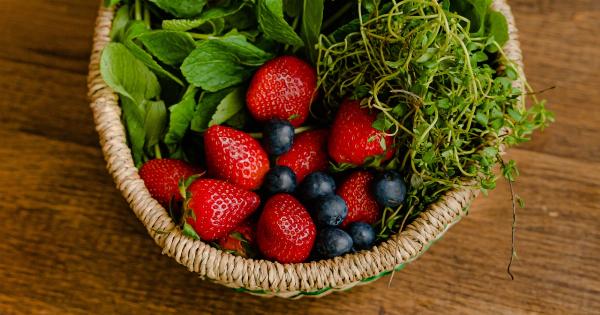Highly pesticide-loaded produce has become a major concern for health-conscious individuals. Pesticides are chemicals that are used to eliminate pests and insects that can harm crops.
Although pesticides are necessary for modern farming practices, the excessive use of these chemicals can have a negative impact on human health.
The Negative Impact of Pesticide-Laden Produce
High levels of pesticides in produce can lead to several health problems.
Studies have shown that people who consume highly pesticide-laden produce on a regular basis are more likely to experience health problems such as cancer, neurological disorders, and reproductive issues. Young children and pregnant women are particularly vulnerable to the negative effects of pesticide exposure.
Pesticides can remain in the body for years after exposure, gradually building up over time. This can lead to long-term health problems that may not show up until years after exposure.
The Most Pesticide-Loaded Produce
Some fruits and vegetables are more likely to contain high levels of pesticides than others. The following is a list of produce that is most likely to contain high levels of pesticides:.
- Apples
- Strawberries
- Grapes
- Celery
- Peaches
- Spinach
- Sweet bell peppers
- Nectarines
- Cucumbers
- Cherry tomatoes
These fruits and vegetables are known as the “Dirty Dozen” because they consistently test high for pesticide residue.
How to Avoid Pesticide-Laden Produce
Fortunately, there are several steps you can take to reduce your exposure to pesticide-laden produce:.
- Buy organic produce whenever possible. The USDA Certified Organic label guarantees that the produce was grown without the use of synthetic pesticides or fertilizers.
- If organic produce is not an option, choose fruits and vegetables that are known to contain lower levels of pesticides. These include avocados, sweet corn, pineapples, cabbage, onions, and sweet peas.
- Wash all produce thoroughly before eating. Even non-organic produce can be washed to remove some of the pesticide residue.
- Peel fruits and vegetables whenever possible. The skin of fruits and vegetables often contains the highest levels of pesticides.
The Benefits of Eating Organic Produce
Eating organic produce can have several benefits. In addition to reducing your exposure to pesticides, organic produce is often higher in essential vitamins, minerals, and antioxidants.
Organic farming practices also have less of an impact on the environment, making it a more sustainable choice.
Although organic produce may be more expensive than conventionally grown produce, the benefits may outweigh the cost in terms of long-term health.
Conclusion
It’s important to be aware of the potential dangers of highly pesticide-laden produce. By following the tips outlined in this article, you can reduce your exposure to these harmful chemicals and make healthier choices for yourself and your family.



























